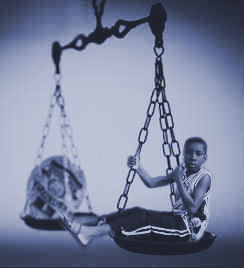Supreme Court Declares Life Without Parole Sentences for Children in Non-Homicide Cases Unconstitutional
NAACP LDF Amicus Brief Cited in Court’s Opinion!
(New York, NY) – On Monday the 17th, the United States Supreme Court declared that children convicted of non-homicide offenses cannot be sentenced to life in prison without the possibility of parole. The Court concluded that because adolescents are, by nature, less culpable than adults and because life without parole is an extreme sentence which is rarely imposed on teenagers, it is cruel and unusual punishment to sentence a child who has not killed to life without possibility of parole. The Court explained that “[a] life without parole sentence improperly denies the juvenile offender a chance to demonstrate growth and maturity. Incapacitation cannot override all other considerations, lest the Eighth Amendment’s rule against disproportionate sentences be a nullity.”
“Today the Supreme Court recognized that children convicted of non-homicide crimes have the potential to become contributing members of society and that certain life sentences run afoul of the Eighth Amendment’s ban on cruel and unusual punishment,” said John Payton, LDF’s President and Director-Counsel.
The NAACP Legal Defense Fund (LDF), along with the National Association of Criminal Defense Lawyers (NACDL) and the Charles Hamilton Houston Institute for Race and Justice (CHHIRJ) filed a friend of the court brief challenging the constitutionality of juvenile life without parole sentences. In declaring these sentences unconstitutional, Justice Anthony Kennedy, writing for the majority of the Court, noted that the NAACP LDF’s brief properly identified the “special difficulties encountered by counsel in juvenile representation” and that “the features that distinguish juveniles from adults put them at a significant disadvantage in criminal proceedings. Specifically, juveniles mistrust adults and have limited understandings of the criminal justice system and the roles of the institutional actors within it. They are less likely than adults to work effectively with their lawyers to aid in their defense.” LDF’s brief also noted the stark racial disparities in juvenile life without parole sentencing -- African-Americans constitute 60% of the youth serving such sentences.
The United States is the only country in the world that permits adolescents to be sentenced to life imprisonment without possibility of parole. Currently there are more than 2500 teenagers serving life without parole sentences for crimes they committed under the age of 18. One-hundred-and-twenty-nine of those young people were convicted of crimes that did not result in death.











